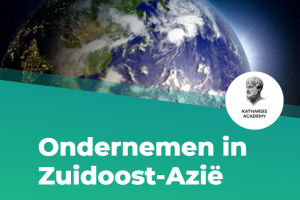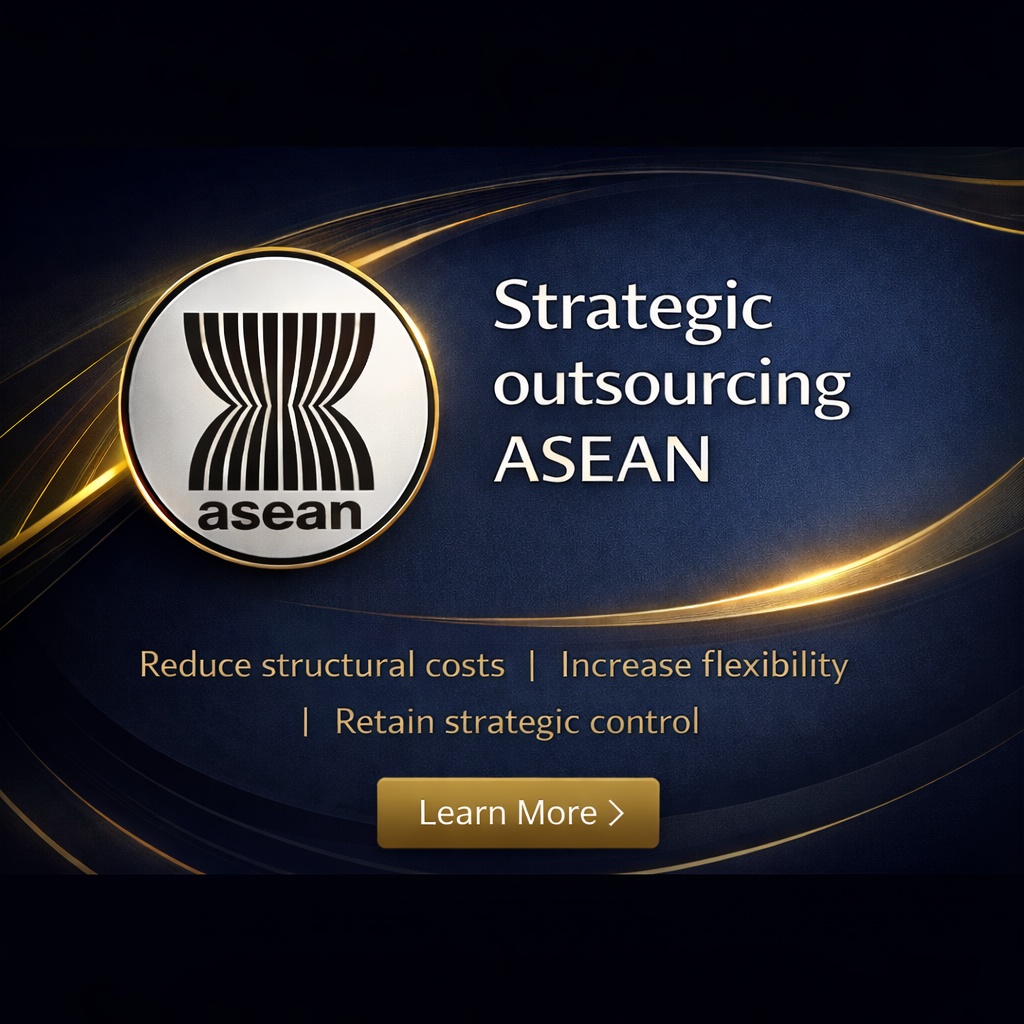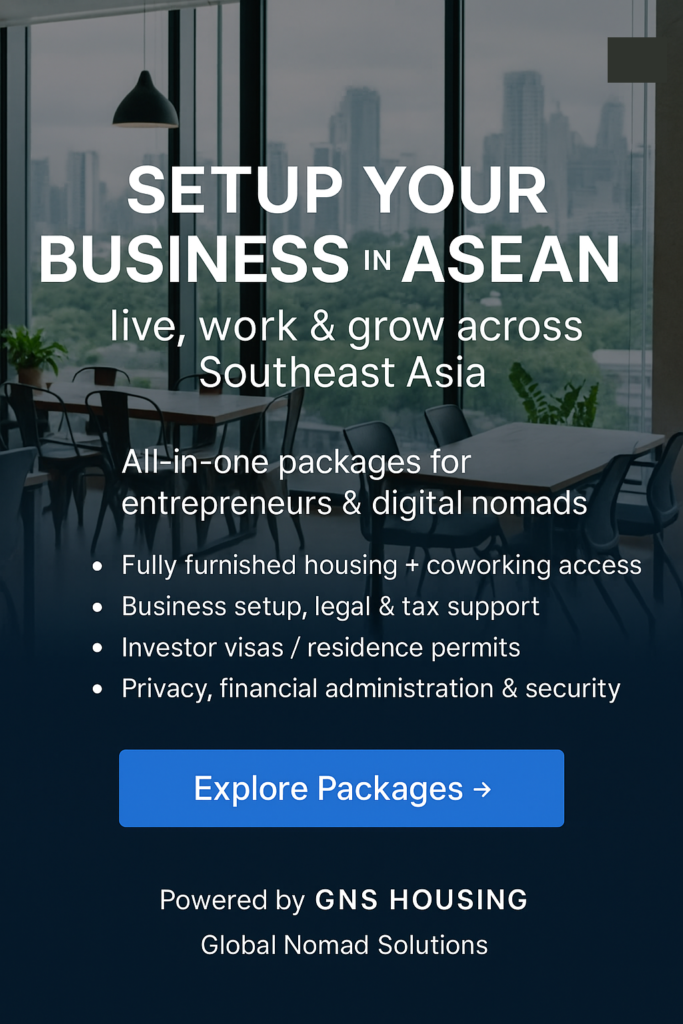The number of location-independent professionals—commonly known as digital nomads—as well as international entrepreneurs is growing rapidly. According to a 2024 report by Pumble, over 40 million people worldwide now work without a fixed place of residence. What began as a niche group of adventurous freelancers has evolved into a global movement.
Southeast Asia—especially the ASEAN region—has become a favorite destination. Countries such as Thailand, Malaysia, Vietnam, and Indonesia offer an attractive combination of low living costs, tropical climates, and improved digital infrastructure. However, the path of the modern nomad or entrepreneur is far from free of obstacles.
More and more digital nomads and entrepreneurs face legal, fiscal, and operational challenges. The romanticized idea of “working from a hammock” has given way to the hard reality of compliance, administrative duties, and strategic business planning.
Wealth & Digital Trust Services
Protect, grow, and earn – with licensed wealth and digital trust solutions.
Wealth today extends beyond savings, shares, and property. Digital assets such as cryptocurrency and tokenized investments are increasingly part of modern portfolios.
Our Wealth & Digital Trust Services unite all your assets into a single, secure, and fully licensed trust structure designed to protect, manage, and grow your capital.
Read more →

Stricter visa policies: freedom with conditions
Many ASEAN countries that previously offered generous tourist visa options are now professionalizing their immigration frameworks. Thailand recently introduced the “Long-Term Resident Visa,” aimed at attracting skilled professionals and investors. Malaysia launched the DE Rantau Nomad Pass, specifically targeting remote workers. Where a tourist visa once sufficed, applicants now face more stringent criteria. Examples include:
- Proof of stable income, typically between €2,000 and €3,000 per month, and savings of at least €12,000 (in some cases)
- Valid health insurance with global coverage
- Certified documentation of professional status (locally authorized)
- Evidence of tax compliance or business registration
The casual attitude of the first wave of digital nomads has disappeared. Nomads without proper documentation not only risk heavy fines but may also be denied future entry or visa approvals.
Increasing fiscal obligations
Tax authorities around the world are stepping up enforcement and sharing financial data across borders. This creates several risks for digital nomads and entrepreneurs, including:
- Unintentional tax residency in the host country
- Double taxation (e.g., in both home and host countries)
- Penalties for undeclared income
- In some cases, criminal prosecution
Those staying in a country for longer periods—often as little as 183 days—are typically required to pay taxes there. Many nomads remain unaware that, without formal legal structures or tax planning, they operate in a legal grey zone.
Increasing administrative burdens: Cross-border business is no easy task
Running a business across borders requires more than good ideas and determination. Administrative demands are becoming increasingly complex:
- Opening business bank accounts abroad (often impossible without the right legal entity)
- Preparing multiple annual financial reports
- Managing contracts with clients across different jurisdictions
- Complying with local licensing and regulatory requirements
- Securing liability insurance and legal protection
A lack of a proper administrative back office often leads to practical issues such as frozen bank accounts, lost contracts, or substantial payment delays.
(International) entrepreneurial skills often underdeveloped
In addition to external challenges, professional development is often lacking. Many digital nomads begin their journey with technical or creative skills but lack fundamental business knowledge. Research shows:
- Only 32% possess basic financial literacy
- Fewer than 25% have a long-term strategy or growth plan
- Just 18% seek legal advice when signing contracts
This lack of business maturity leaves digital nomads vulnerable. Without skills in areas such as financial management, legal compliance, marketing strategy, and risk assessment, problems are likely to arise sooner rather than later.
ASEAN: attractive, but careful preparation is key
The ASEAN region offers immense opportunities: growing economies, vibrant (startup) ecosystems, and a welcoming environment for international entrepreneurs. However, the playing field is becoming increasingly professionalized.
Those looking to work or run a business sustainably in countries like Malaysia, Thailand, or Indonesia must not only meet stricter visa and tax requirements but also evolve into capable, strategic entrepreneurs. Without this professionalization, the dream of freedom can quickly turn into a bureaucratic and economic nightmare.
The need for sustainable support
The modern reality of the digital nomad lifestyle demands more than flexibility. Structural support is becoming essential. More and more entrepreneurs are opting for professional guidance. Comprehensive service packages—such as the DNME packages offered by Global Nomad Solutions—provide solutions aligned with this new reality:
- Business structures in entrepreneur-friendly jurisdictions
- Payroll and contract management services
- Full financial administration, including tax filings
- Legal support for visa applications and residency rights
- Coaching programs focused on business growth and personal development
By outsourcing practical tasks and investing in entrepreneurial skills, digital nomads can focus on their core activities—and remain sustainably successful.
Conclusion
Location-independent work offers unprecedented freedom. But in 2025, it also demands legal precision, fiscal responsibility, and solid entrepreneurial capabilities. Especially for those looking to settle in ASEAN, preparation is not a luxury—it’s an absolute necessity.
Entrepreneurs aiming to thrive in ASEAN should ensure they receive robust legal, fiscal, and administrative support. Only then can the dream of working under the palm trees remain a long-term reality.








Reageer op dit bericht